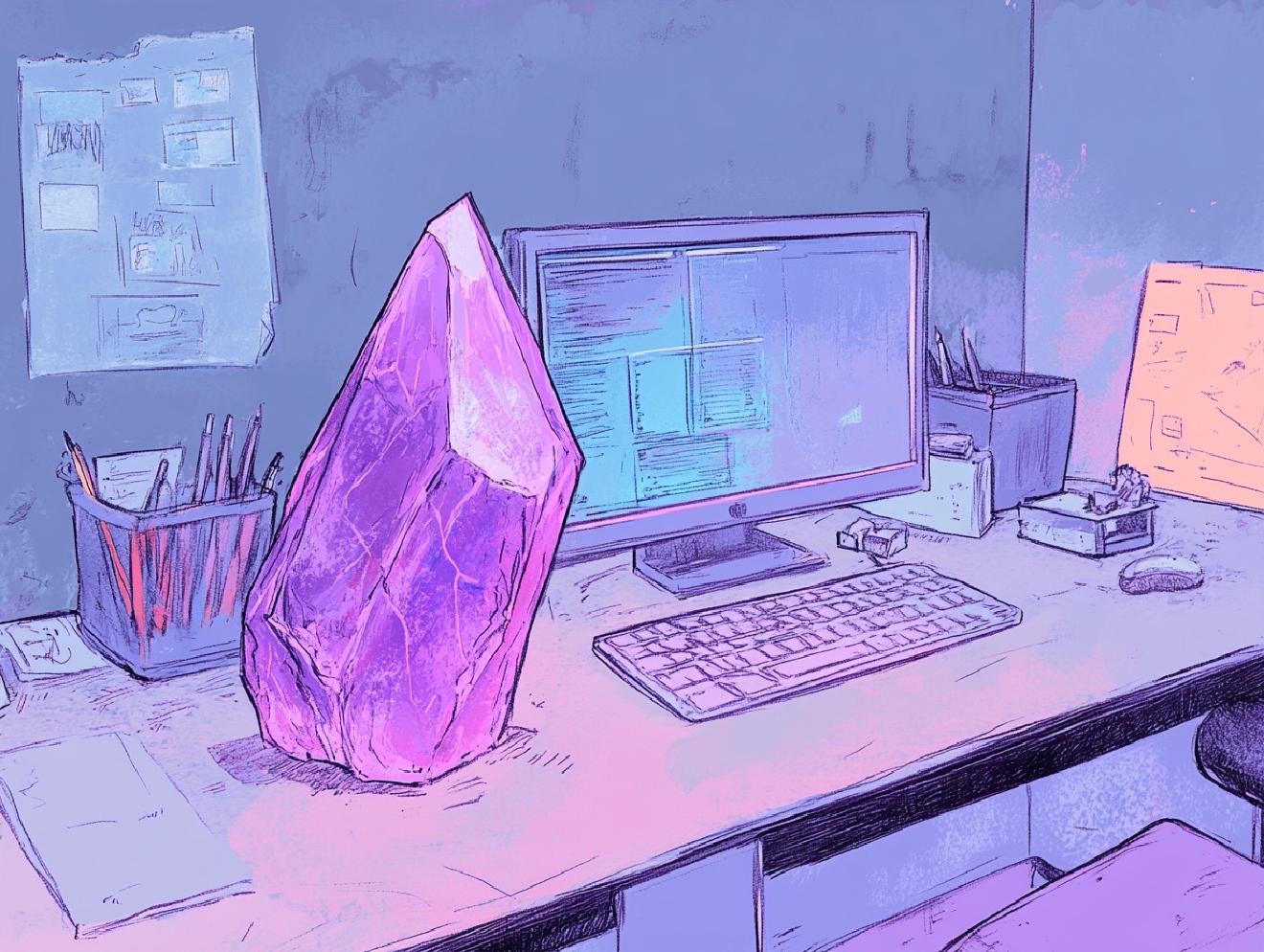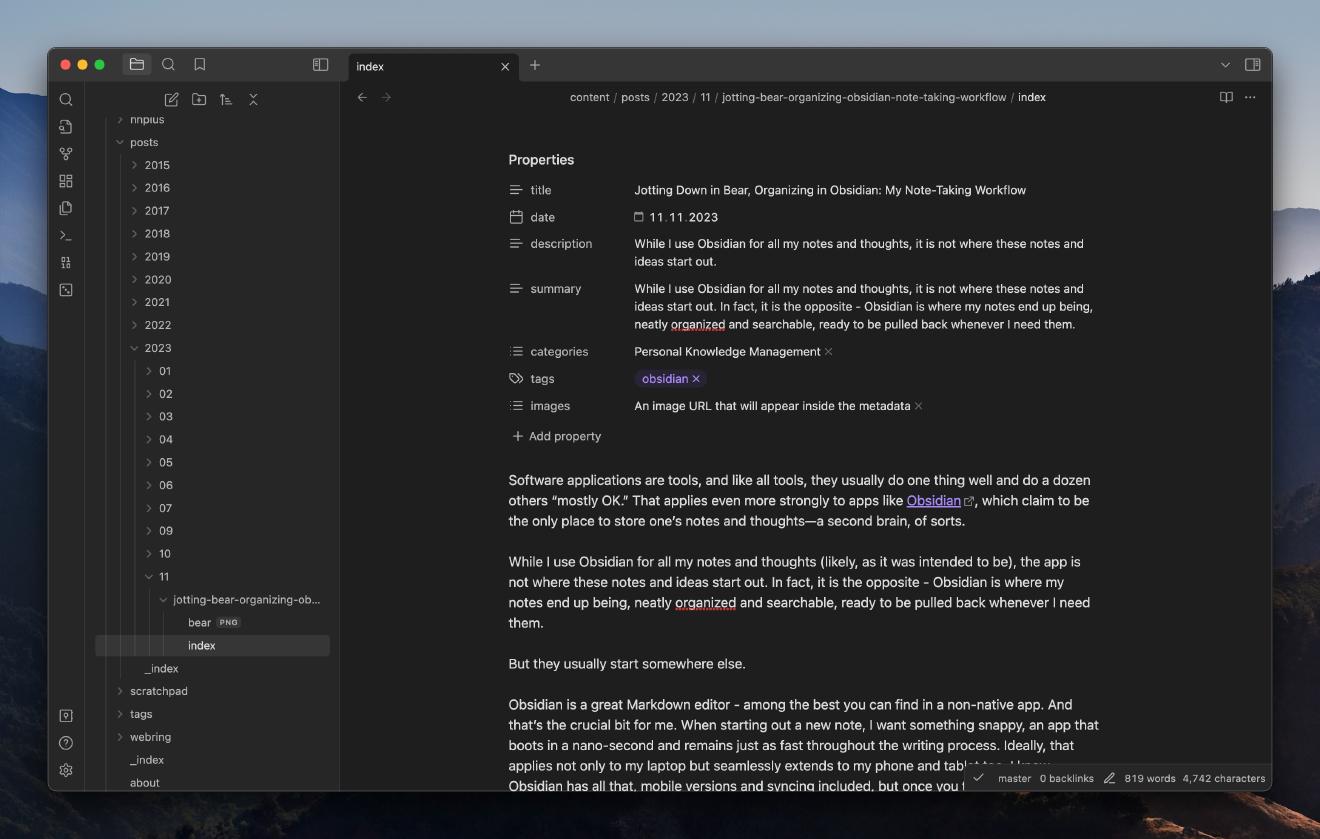
Note: The following blog post is a direct extract from my upcoming book, Write Your Book With Obsidian. You can get the half-finished draft and all its future updates at a whooping 50% discount. Secure your copy today and help me finish the rest of the book.
Before I move on to describe all the cool things you can do with Obsidian, I need to get something off my chest. It may not concern you at all, or it may be a deal breaker for a few, so I need to get it all clear right here and now. Okay, here we go …
Obsidian is free to use but not open-source #
This is what a bunch of people struggle to understand at first. Obsidian is so cool and local-first, has this open ecosystem, and is free to use, so it makes perfect sense that it must also be open-source, right?
Well, no.
Being free to use does not make a piece of software open-source by default. In a similar fashion, you probably already use many software applications for free, but you will never get to see their source code because their creators never intended you to do so.
Does this have to be of concern to you? Here is my take - for most of you, being closed-source is perfectly fine. You use the product, after all, not the source code it was made out of. Even I, despite my decades of software engineering experience, am not really interested in peeking behind Obsidian’s source code. I trust the company that builds it, and that’s enough for me. Plus, its extension API has been openly documented, so you can still make extensions without knowing anything about the code that is going to execute them.
I touched upon an important word in the previous paragraph - trust. By not seeing what the code does, you trust the company that it is not doing something bad with your content and private data. Until now, I have not seen or heard of an instance where the trust in the Obsidian team has been compromised, but if you are a security expert or work in an environment where a security expert needs to approve what software you are allowed to use (e.g., some Universities, workplaces, etc.), this may come into question. To be on the safe side, always ask first.
Now, onto the next point.
Being free does not mean that Obsidian has no commercial license #
In fact, it does have one, albeit a bit vague. I will try to decipher that one, but beware that I am not a legal person, so don’t come after me if I am wrong. Always consult a legal specialist when in doubt.
In short, Obsidian’s commercial license, at its current form, only applies to organizations where two or more people profit financially from using it. There is an exception for sole proprietorships and single-person organizations. And, of course, if your writing is not intended to be sold commercially, you have no reason to worry.
So, for most indie authors, even those who make commercial profit from their books, this should be perfectly fine. Of course, if you ever cross a threshold that requires a commercial license, chances are, you are earning multiple times more from your books than the $50/year that a commercial costs (in mid-2024), so let’s say you will be fine.
Have something to say? Join the discussion below 👇
Want to explore instead? Fly with the time capsule 🛸
You may also find these interesting
3 (+1) Things Evernote Got Right
A look at three features that made Evernote click for me back in the day — ones that modern note-taking apps still struggle to replicate fully.
No One Needs Teachers Anymore
Kids of tomorrow will need coaches and mentors instead. More than ever.
Double-Click to Edit: Rethinking Note Interactions in Obsidian
Switching between reading and editing modes in Obsidian with ease: a simple home-made plugin that brings intentional editing to my note-taking workflow.
Write Your Book With Obsidian: The Preface
A few notes on reviving my book’s draft. I am sharing its preface, so readers can see if they relate to the narrative.
Jotting Down in Bear, Organizing in Obsidian: My Note-Taking Workflow
While I use Obsidian for all my notes and thoughts, it is not where these notes and ideas start out. In fact, it is the opposite - Obsidian is where my notes end up being, neatly organized and searchable, ready to be pulled back whenever I need them.




